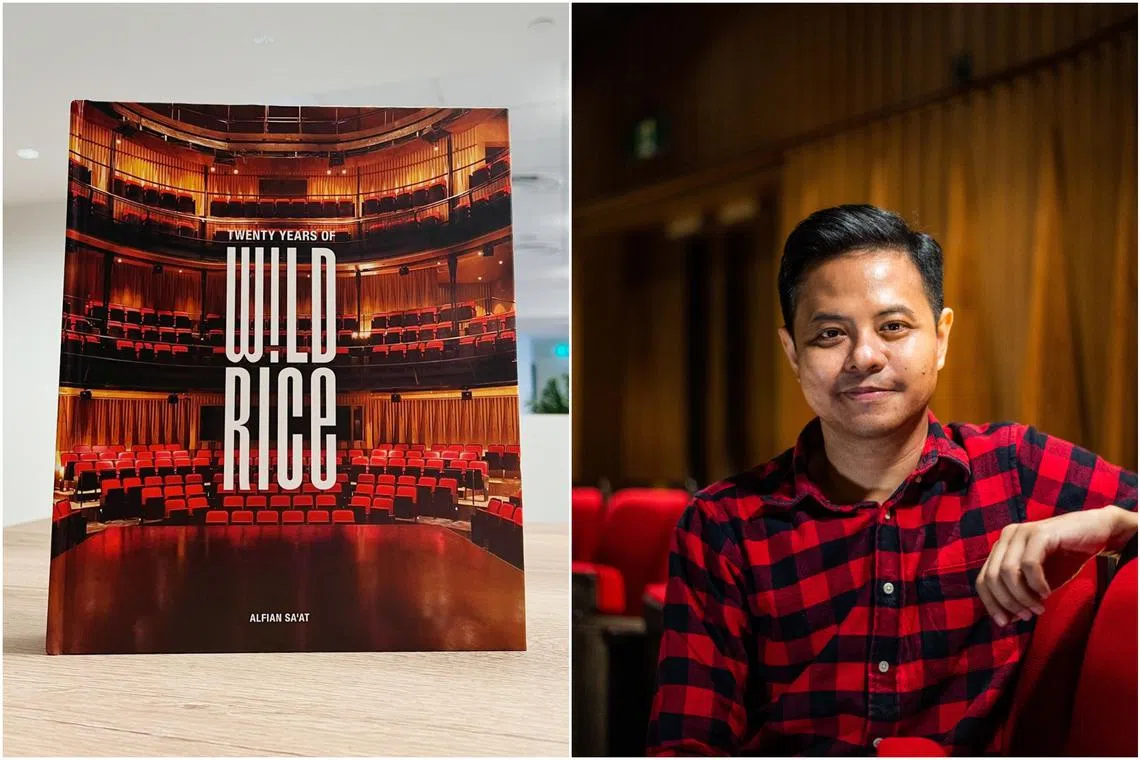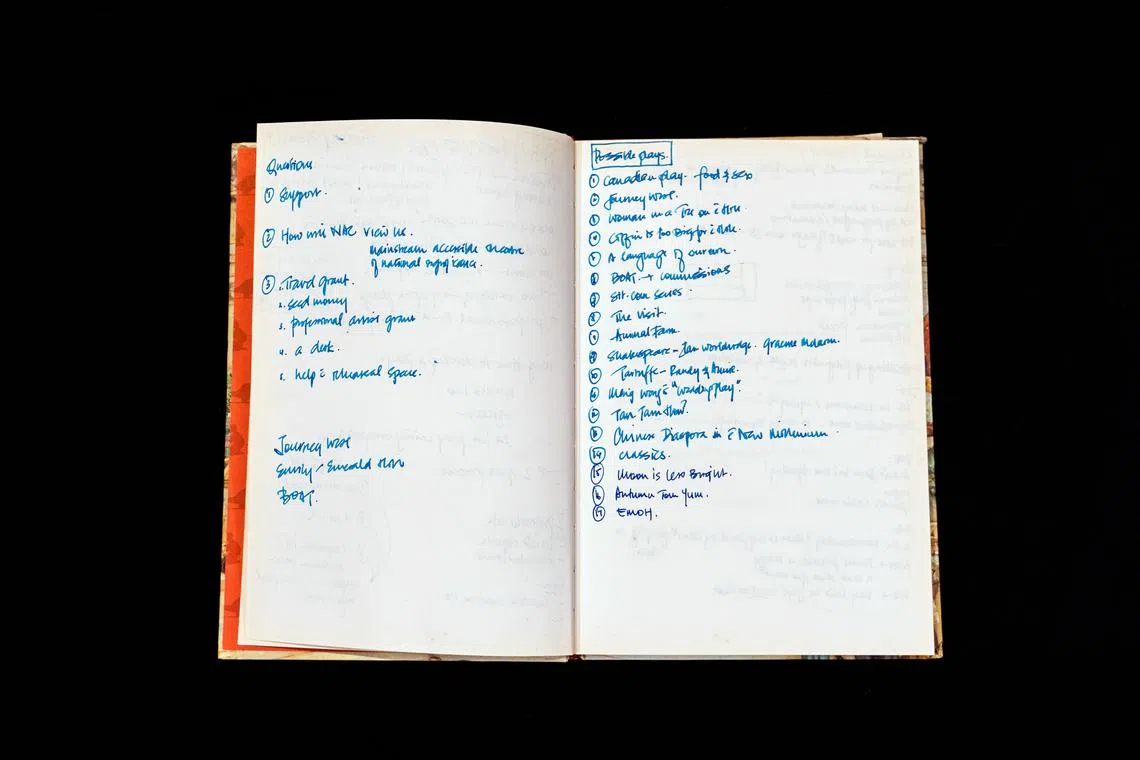Book review: Polished, picture-heavy book commemorates Wild Rice’s 20th anniversary
Sign up now: Get ST's newsletters delivered to your inbox

Wild Rice's resident playwright Alfian Sa'at has written some of his best works under the company's aegis.
PHOTOS: WILD RICE
Follow topic:
Twenty years of Wild Rice
By Alfian Sa’at Epigram Bookshop
Non-fiction/Epigram/296 pages/$60 from
3 stars
This handsome hardcover coffee table book is Wild Rice’s commemoration of its 20th birthday, which actually happened in 2020.
Of course, that year was memorable for all the wrong reasons, as the Covid-19 pandemic forced theatres to go dark around the world. Now, three years later, theatres are back in full swing and Wild Rice’s delayed book, written by resident playwright Alfian Sa’at, is finally out.
There are companies older than Wild Rice. Drama Box celebrated its 30 years in 2022, The Necessary Stage is 36 in 2023, while grand dame The Theatre Practice’s history dates back to 1965. But Wild Rice has indisputably had a sizable impact on the English-language theatre scene.
Beginning with a one-man show – its first presentation was founding artistic director Ivan Heng playing Emily Of Emerald Hill in Hong Kong – Wild Rice now boasts a 26-strong team running a 358-seat theatre at Funan mall, complete with year-round theatre seasons as well as education and outreach programmes. That is an impressively compressed growth trajectory by any measure, considering the limitations of Singapore’s small live theatre market and the modest size of its talent and resource pools.
This book sticks to a mostly factual documentation of Wild Rice’s origins, from initial founding to interviews with co-artistic directors Heng and Glen Goei to recaps of Wild Rice’s repertoire, including remakes and originals.
It skirts diplomatically around some of the stickier bits of Wild Rice’s history. Heng had been lured back to Singapore in the late 1990s by the late Tony Petito, then artistic director of the Singapore Repertory Theatre (SRT).
Heng was obviously being groomed to take over SRT. Instead, he quit in 1999 “due to artistic differences”. He did not speak to the press at the time, and no more light is shed in the “just the facts” recap here that charts the beginning of Wild Rice.
There is no mention of the financial crisis the company faced in 2005, having to convene an advisory board to clear a $500,000 debt.
The infamous funding cut the National Arts Council imposed in 2010 – because, as The Straits Times reported then, Wild Rice productions “promoted alternative lifestyles, were critical of government policies and satirised political leaders” – is mentioned but not dwelled upon. Ditto the multiple censorship run-ins the company has had over the years. Perhaps these more tendentious issues are fodder for a more serious survey of the Singapore theatre scene.
What this picture-heavy book does accomplish is remind artsgoers here of how one theatre company has helped grow the scene by cultivating young writers, nurturing budding performers and, in the process, growing the audience for Singapore theatre.
Heng and Goei are products of a post-colonial education system that encouraged the study of English literature, and they have come out of it with a great ear for stories and dialogue. This, no doubt, helps explain Wild Rice’s dedication to good scripts.
Wild Rice has never shrunk from putting its money where its mouth is – throwing resources into ambitious projects such as the Singapore Theatre Festival.
Despite multiple funding challenges over the years, the festival boasted more interesting programming than the then Singapore Arts Festival, with its generous embrace of productions by fellow theatre groups, unstinting support of emerging playwrights and restagings of works.

Ivan Heng’s earliest journal notes on possible plays and resources needed for a new theatre company.
PHOTO: WILD RICE
Wild Rice has stuck to its guns even during the gruelling pandemic, managing to stage both old and new plays despite the logistical and financial challenges posed by social distancing rules.
It is also evident that audiences have repaid the company’s dedication to its mission. Before there was the Taylor Swift ticket mania, there was the mad scramble for limited tickets to Wild Rice’s shows like An Actress Prepares and Fag Hag when theatres finally reopened in October 2020.
While a dedicated theatregoer might have wished for a more in-depth exploration of the company, this polished, rah-rah production of a book is very much in the Wild Rice vein of a stylish, informative night out at the theatre. Long may the company reign.
If you like this, read: Drama Box: 30 Keywords, edited by Quah Sy Ren (Drama Box/Pagesetters, 2022, paperback, 318 pages, $45.30 from City Book Room, str.sg/iwCS
This article contains affiliate links. If you buy through these links, we may earn a small commission.


